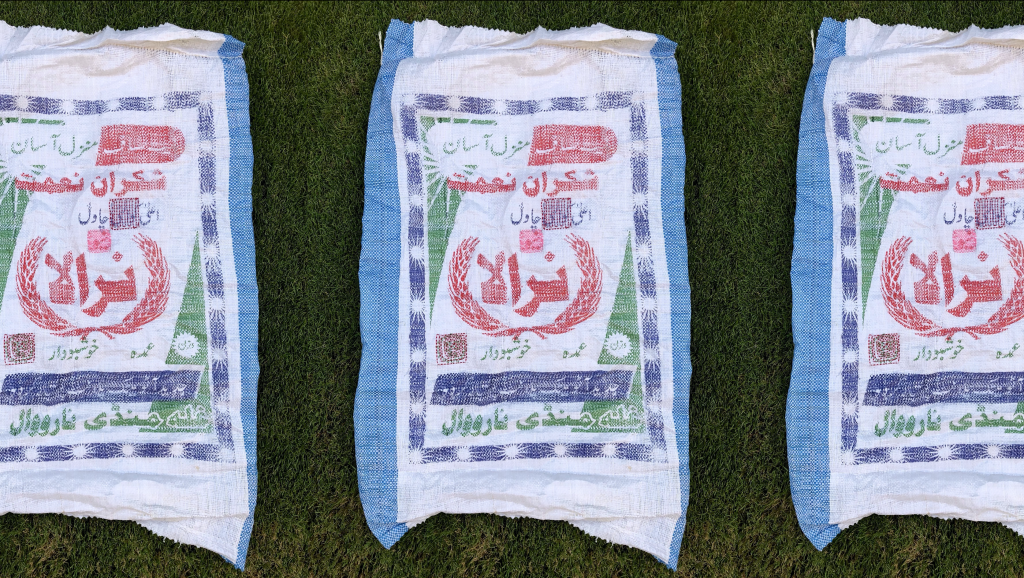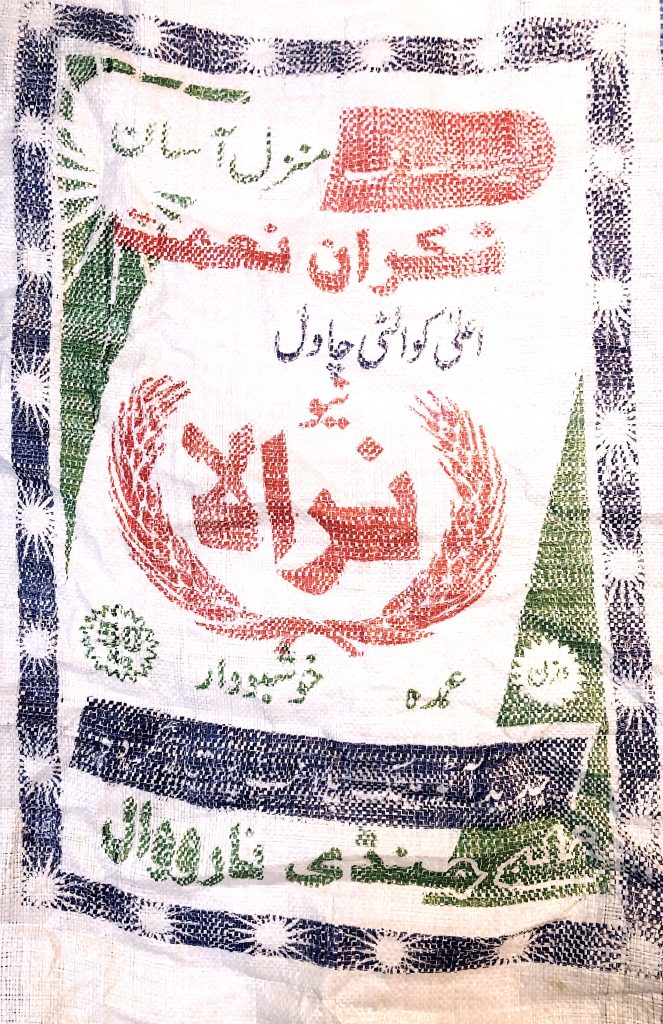
For this action, I stepped away from my screen, bedroom and went out around the house looking for materials I could work with. I spent the entire day noticing little things around me and eventually came across a sack full of rice in my kitchen. I touch Woven polypropylene (PP) sack, made from recycled plastic and examine it closely. It’s beautiful! The plastic is stretched into threads, which are then woven together to create a fabric. This fabric is then used like any other fabric and sewn into reusable bags. At this point, the lexicon word I had in my mind was “Evolving Permanence.”
I transfer the rice out of the sack and lay it flat on the ground. I start to read what’s written on top of the sack. I read it again and again and again. Words like quality, new,50kg and automatic have been displayed in Urdu typeface, although alternative Urdu words are available and could have been easily used to convey the message.
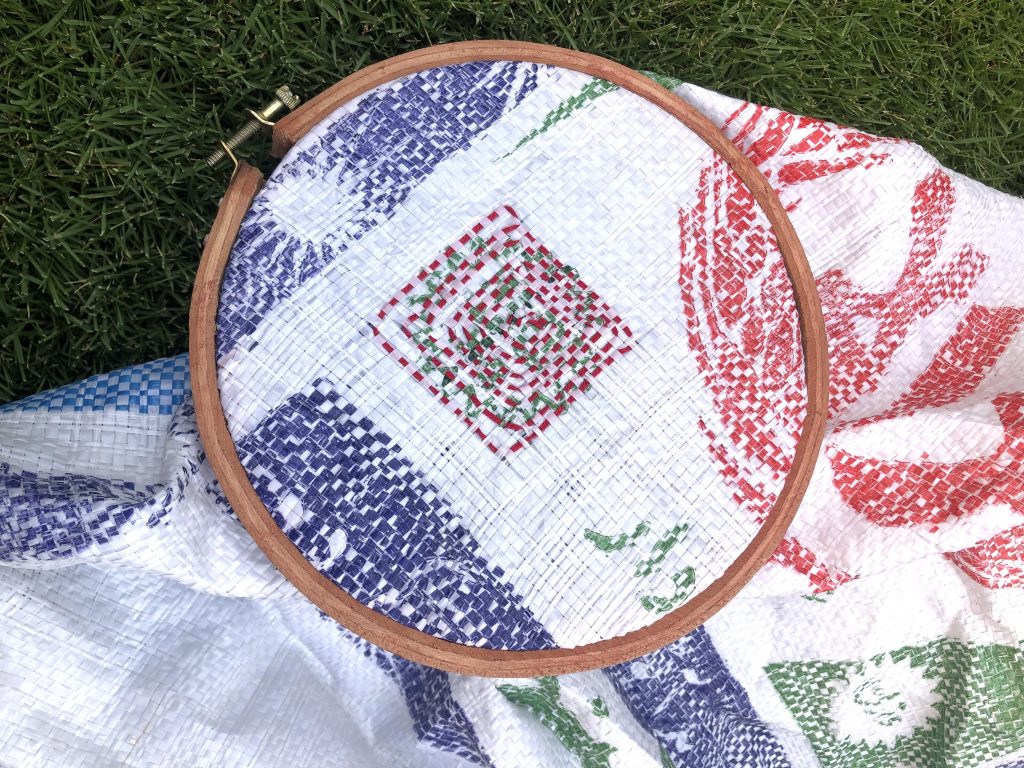
Perhaps I had read too much about decolonization that week, and I was sensitive about everything. Pakistan was a British colony for more than two hundred years. Colonization completely swallowed the indigenous design, and the European systems entirely replaced our knowledge and language. Now, decolonization has come to represent a whole host of ideas. For some, decolonization is a project of decanting settlers’ perspectives to emphasize natives, the process of recovery, restoration of identity, and use to critique eurocentrism and modernism. These are all interconnected to decolonial design. Censoring those words with thread was my process of healing.
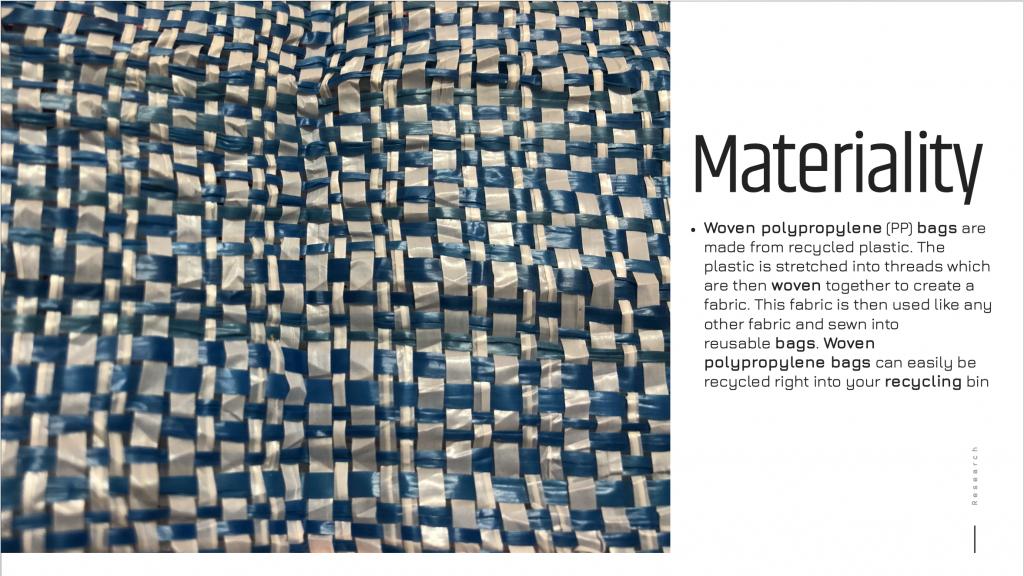
material 
words
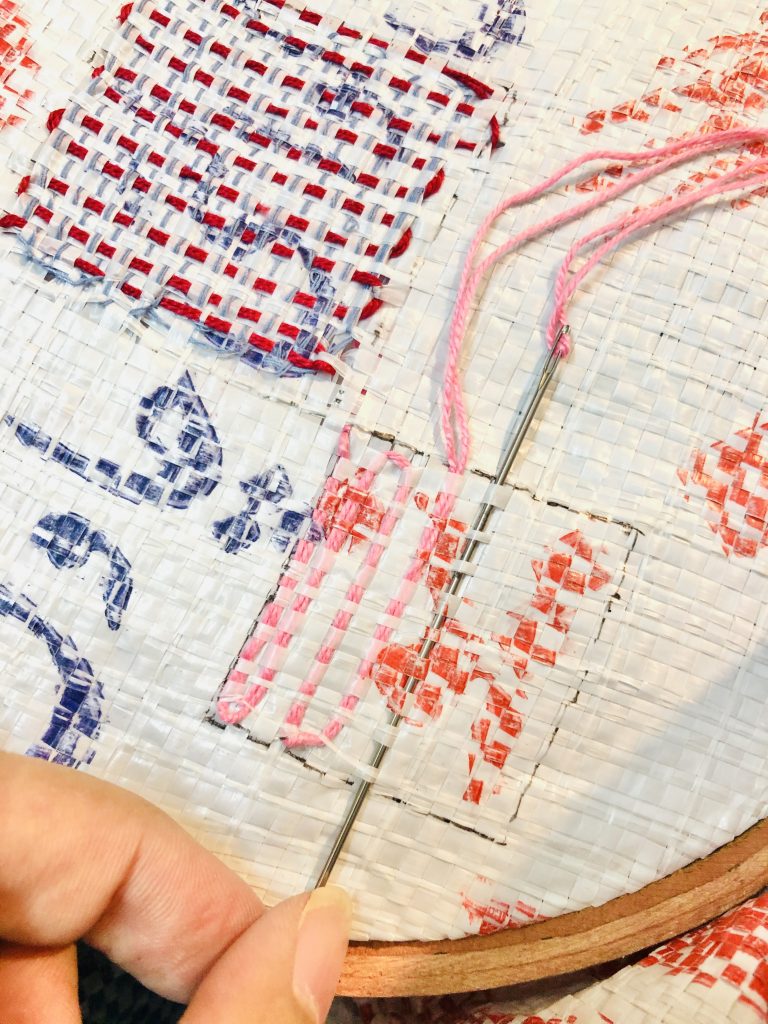
process 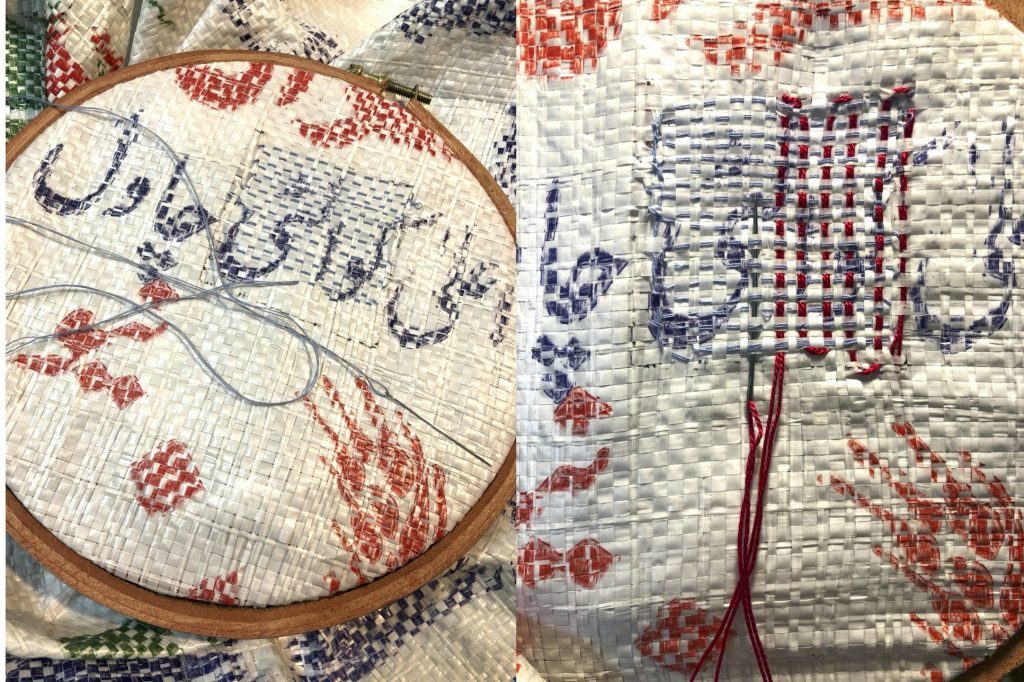
process
